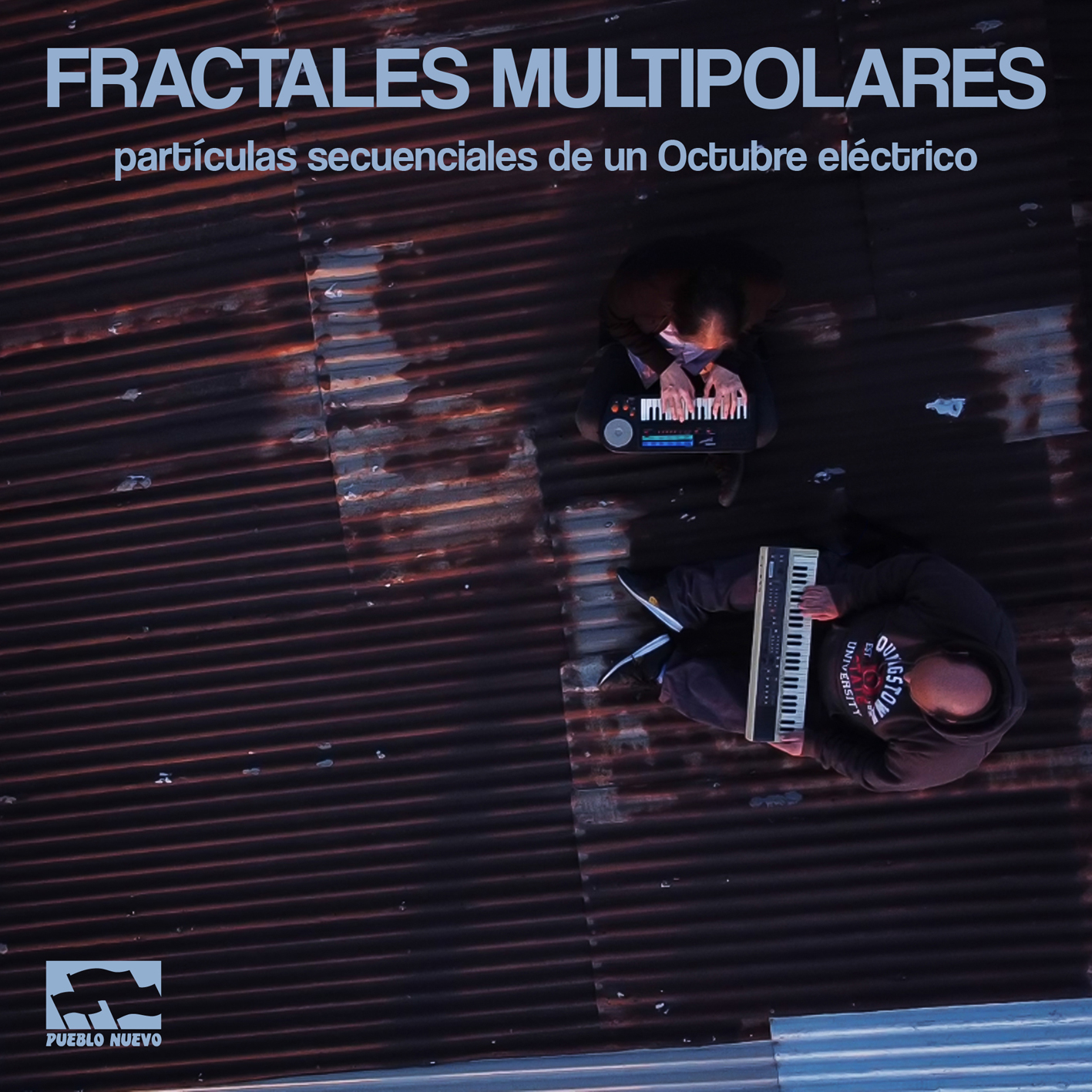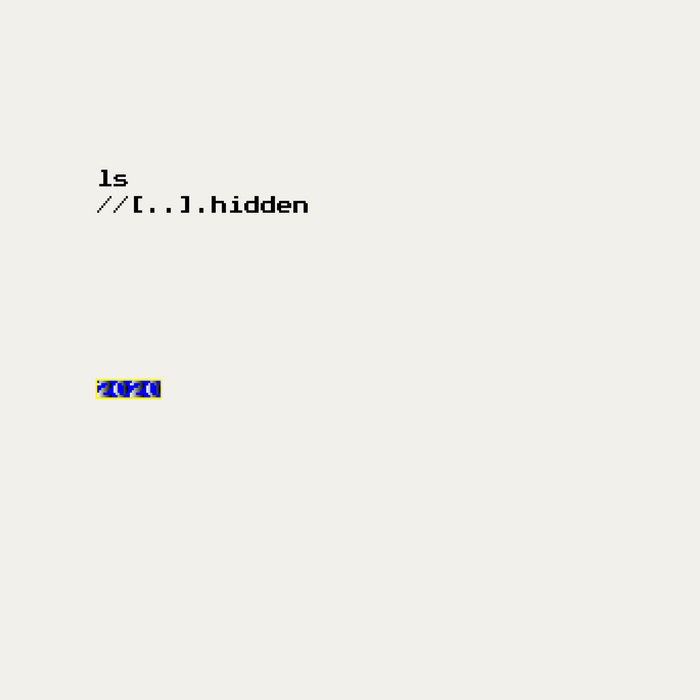Fractales Multipolares
“particulas secuenciales de un Octubre electrico”
A Fractales Multipolares sonic epiphany/experience
“There is no Brian Cox-style smiling mediator to console the listener, nor any daft simulation of alien invaders or meteor attacks. Just an immense suspension of light and sound, not cool, not cold, not warm. Their very relationship to time and place, their evocation of those distant corners of space that always existed and always will, irreducible to melody or narrative, accounts for their timelessness.”
Excerpt From: David Stubbs. “Future Days.” Apple Books. Pages 497-498.
I remember sitting beside a small stage at Universidad Católica de Chile’s music school auditorium. In front of me, a 24-channel mixing desk, panning and amplifying an impressive array of synthesizers, rhythm machines, effects, cables and keyboard stands stacked in front of an eager audience, ready for a “sonic epiphany”. It’s a “Fractales Multipolares” concert, booked as part of the second “Voltajes Aleatorios” synth event, curated by the homonymous Foundation. I’m still holding the mike I introduced Renzo Torti-Forno and Guillermo Morán with to a crowded space. The experience starts slowly, mysteriously: “guttural”, unaccurate. Metallic sounds take over the first minutes of the concert. Machines warming their transistors, microchips, and circuits up for performance. Slowly, but persistently, a thick, fat, subtle sonic palette takes over the entire auditorium, wrapping us around.
Electronic dinosaurs awakening, roaring in large numbers, delivering a varied sonic palette (once again!). Electricity takes over the auditorium and us, attentive listeners identifying and vibrating with the landscapes, textures, sonic atmospheres, subtly, accurately mixed by the synths. Shrieking, elated sounds coming from those machines, resonating with their surrounding sonic range on us all. These experimental surfaces by “Fractales Multipolares”, Renzo Torti-Forno and Guillermo Morán, took us on a textural, atmospheric trip, reminiscent of the 1970s Tangerine Dream. Torti-Forno and Morán painstakingly set up a huge collection of synths and rhythm machines on that small stage before, just to play it in front of an excited audience, yearning for the event to come.
Around minute eight, a low, reverberant wave emerges, filling up the place and setting us on an thick realm: melodies, rhythms, moving in slow intervals, reappearing along different scales; a dense, powerful journey for the listener, result of the experienced link between machines and the two synthesists. Sound history echoes old school step sequencers, invoking that glorious, epic Tangerine Dream, Klaus Schulze Berlin scene to the experienced listener.
While listening to “Fractales Multipolares”, it is worth bearing in mind that, according to Wikipedia, a fractal is “a rough or fragmented geometric shape that can be split into parts, each of which is (at least approximately) a reduced-size copy of the whole”. We can find this particular geometry in Nature itself. Multipolarity points to an absence of a center or unity, favoring diverse poles of action, imaginary and ideology. A multipolar fractal, then, is a geometric experience that acquires a fragmented and irregular quality in a diversity of poles of action, no center needed. An infinite repetition of different scales. Considering this definition, it contains a repetitive, irregular, fragmented reverberation that, as the quotation above suggests, generates a relationship with time and space, an evocation of those distant corners of the universe that existed and will exist forever, irreducible to any melody or narrative, accounting for the timeless character “Fractales Multipolares” melodies, leads, and sequences presented that 2019 evening. Towards the end of almost 35 minutes of music, a synesthetic, angelic image brings us closer to pop, Air-like structures, calling and sonically opening those doors, delivered by additive sounds from a Seiko DS-250 synthesizer. It feels like entering the sky, driven by high-quality, deep atmospheres, a soft, but steady rhythm, presented at the end as a mysterious whole before the applause, like briefly meeting an entity that, despite my efforts, I’m not able to describe.
Listening to this only performance (by now) by this learned, fragmented, repetitive duo, opens up a multiple experience, meeting a complex and vigorous palette, connecting different synthesizers, rhythm machines, and effects styles, techniques, treatments, taking us through ambiences in deep darkness, opening up the ether of Heaven. But this experience, beyond possible visual projections, is multi-sensory, “the kind of music you saw as well as heard” as David Stubbs states in his book Future Days. Krautrock and the Building of Modern Germany (Faber & Faber, 2014) dealing with Tangerine Dream -an important “Fractales Multipolares” reference-, who developed a unique sound palette using modular systems, sequencers, effects and tape hiss, a language “that drew on a wider, academic training rather than simply looking to hone iconic postures of rock attitude.” (excerpt from: David Stubbs. “Future Days.” Apple Books (492)).
My experience is over, while I remember and listen to the audio file again, an imaginary and synesthetic meeting in mind, but, alas, unable to figure out what it is made of. We just rejoice ourselves in the powerful, different, necessary delivery that, at times, stays away from both a certain rhythm and the usual genre frames, raising up glimpses of a multipolar, multi-referential way of understanding, feeling and making synthesizer music at this southern end. I can remember that sonic epiphany now because of this recording. “Fractales Multipolares” delves into strange regions, not included in Chilean cartophony or sonic maps, but roaring to get on the scene. The invitation is to make yourself comfortable, turn the volume up and travel freely through this sonic landscape!
Andrés Grumann Sölter aka Andérs Klümppe
Profesor universitario y creador sonoro / Professor, sound creator.
(Santiago, Chile. Octubre / October 2021)








